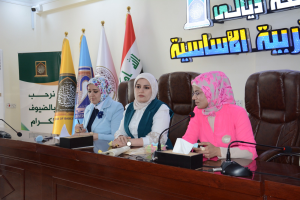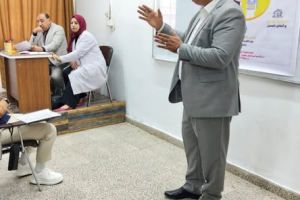
The History Department cultivates beauty
The History Department at Diyala University cultivates beauty and renews green life as part of the college’s sustainable development initiatives
As part of promoting a culture of environmental sustainability and social responsibility, the Sustainable Development Committee in the History Department at the Faculty of Basic Education, in cooperation with the Media and Government Communication Division, organized a volunteer campaign to plant ornamental flowers and trees in the college gardens, as part of a project to plant and maintain green spaces, under the supervision and follow-up of the head of the department, Assistant Professor Dr. Ishraq Issa Abdul.
Members of the department’s Sustainable Development Committee participated in the campaign, including Professor Dr. Iyad Turkan Ibrahim, Assistant Professor Dr. Laith Abdul Sattar Ayada, and Assistant Teacher Madina Hussein Ali, along with a number of the department’s professors and students who contributed with enthusiasm and environmental awareness to the implementation of the campaign and instilled a spirit of cooperation and belonging to the college.
The campaign aimed to increase green spaces and improve the university environment, reflecting the civilized image of the college and creating a comfortable and healthy educational atmosphere, as well as establishing the concept of sustainable development as an educational value and human behavior in the minds of students.
The Dean of the College, Assistant Professor Dr. Ayman Abdul Aoun, praised this initiative, appreciating the efforts made by the Sustainable Development Committee in the History Department, and emphasizing that these activities represent a practical translation of the college’s commitment to sustainable development goals and promoting environmental awareness among students and staff.
This event is part of the college’s efforts to achieve the Sustainable Development Goals (SDGs), particularly Goal 15: “Life on Land,” which calls for the protection of terrestrial ecosystems and the increase of green spaces as a fundamental pillar in combating climate change and maintaining environmental balance on campus.


![]()



